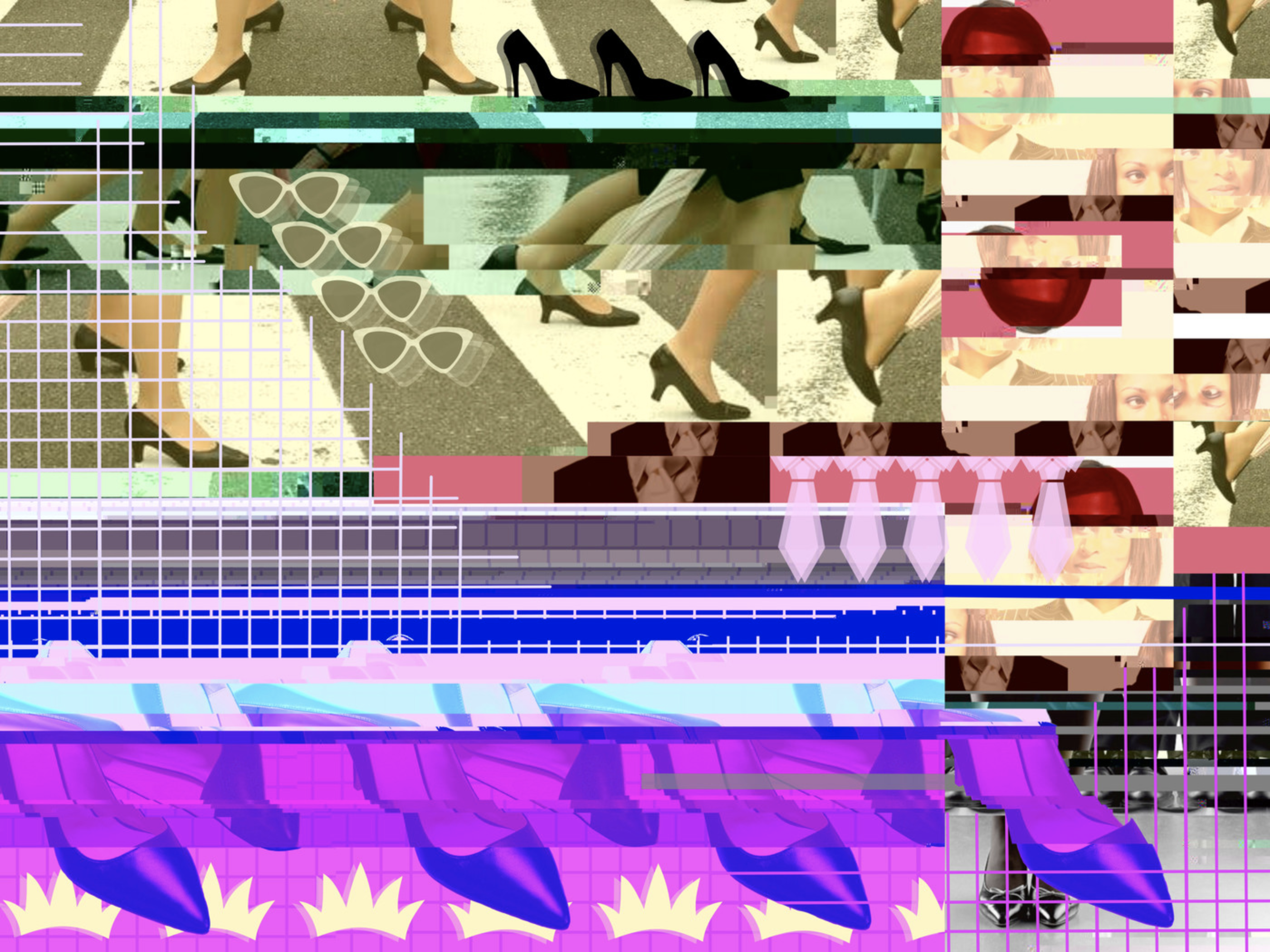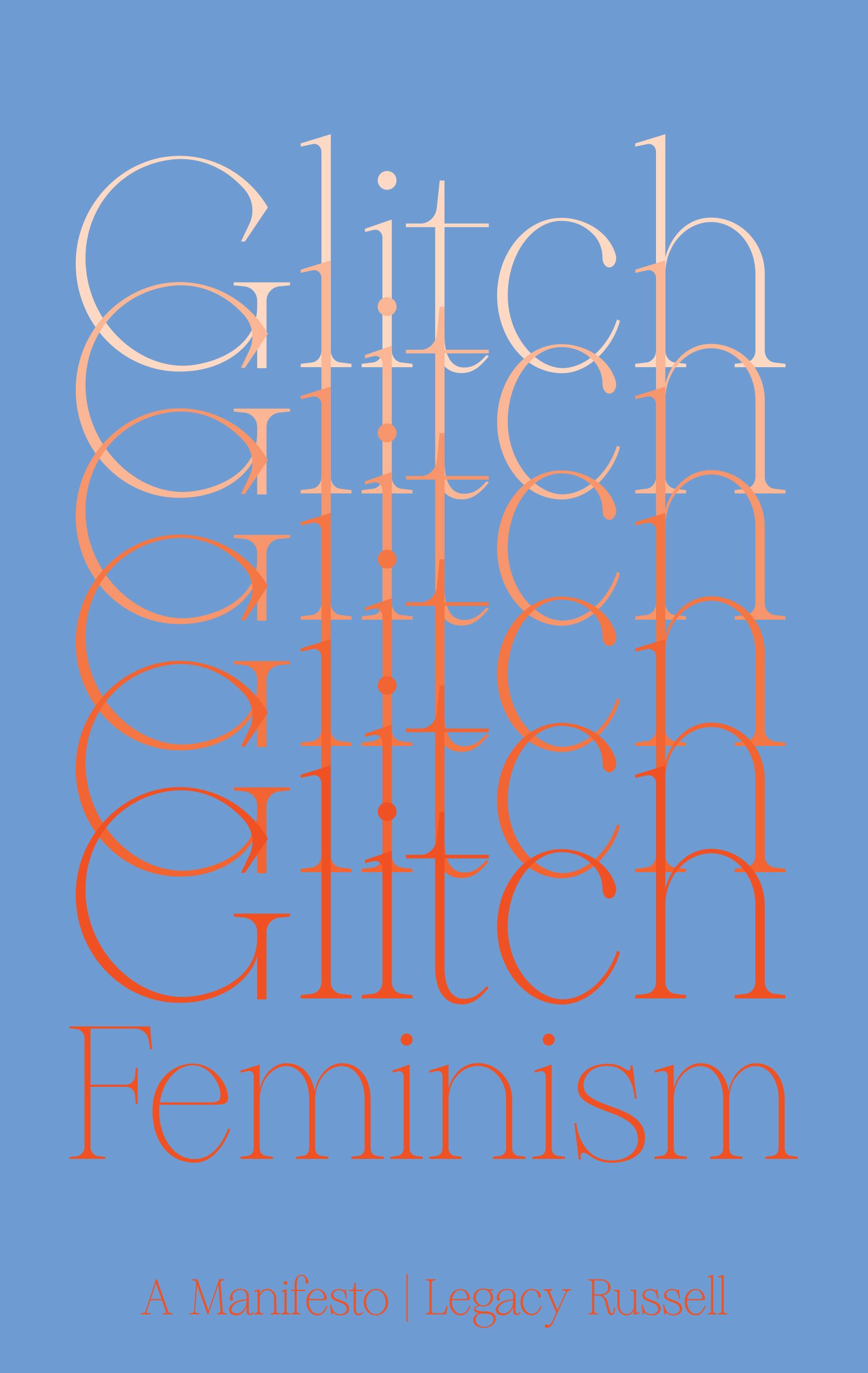



Ilona Kovacs
Professor Noah Travis Phillips
Internet Art Cultures
April 15th, 2021
Exploratory Writing 3B
 Prior to diving in to explore this cosmic range of knowledge that Legacy Russell lays out for us in her Manifesto, Glitch Feminism, I have had my own pre-exposure to the topic and my original perceptions. I was excited to learn we would be researching and obtaining more depth on this topic, as it is something I have already tried to explore in a couple of my earlier pieces!
Prior to diving in to explore this cosmic range of knowledge that Legacy Russell lays out for us in her Manifesto, Glitch Feminism, I have had my own pre-exposure to the topic and my original perceptions. I was excited to learn we would be researching and obtaining more depth on this topic, as it is something I have already tried to explore in a couple of my earlier pieces!
I created a glitch piece I titled Girls will be Girls with a creative content focus of women in power. In my glitch, high heels are one of the most common themes in the piece because of their significance to womanhood and power together. The repetition is very in your face because the pattern of gender bias is predictable at this point. Women are incredibly impressive but are less likely to receive a position or get an opportunity to prove themselves due to their gender.  I like viewing the high heels as a way of raising women up to be on a more level playing field with men in a cartoon illustration explaining 'equity.' The piece remains boxy and geometric because in order to be given a chance, women often find themselves needing to fit into a box or mold of a ‘perfect’ girl. I find it garbage that boys can and will be boys, but women are held to high expectations and considered failures if they aren’t met. Luckily, girls will be girls gives the impression that they will work hard to overcome all obstacles to become their personal goal, even if it goes against the status quo.
I like viewing the high heels as a way of raising women up to be on a more level playing field with men in a cartoon illustration explaining 'equity.' The piece remains boxy and geometric because in order to be given a chance, women often find themselves needing to fit into a box or mold of a ‘perfect’ girl. I find it garbage that boys can and will be boys, but women are held to high expectations and considered failures if they aren’t met. Luckily, girls will be girls gives the impression that they will work hard to overcome all obstacles to become their personal goal, even if it goes against the status quo.
I think that there are a few overlaps in Russell and I's ideas of #GlitchFeminism, which are bolded above, but I am appreciative of the expansion that the first few chapters of the manifesto have provided me. I think it is incredibly important to recognize this idea of ghosting and destroying the binary whether that be in glitching an actual binary code or these perceived 'errors' in binary biological foundations. I especially appreciate how inclusive and celebratory Russell is about every kind of individual and steering away from comparing them to each other, which is obviously something I had the habit of pursuing and exploring in my earlier pieces on feminism. I am hopeful to be able to explore more of my own abilities surrounding these limitless cosmos of fluidity. My own ideas have space to become more 'anti-body.'
The idea that Russell introduces about humans being like machine slaves is one that provides a lot of general perspective about the algorithms which we base our lives around. If things have been a certain way for so long, the code and numbers written to talk or predict about the topic are going to skewed to continue those original results. They are set up with bias programmed into them. Breaking away from these systemic norms becomes an insane challenge when it is not only one that pressures dialogues and thinking, but also uncontextualized and evolving data. Understanding context around things changes present perceptions, and that is never a bad thing, it only becomes confusing as it contradicts data which made sense to the perceptions at a previous time.